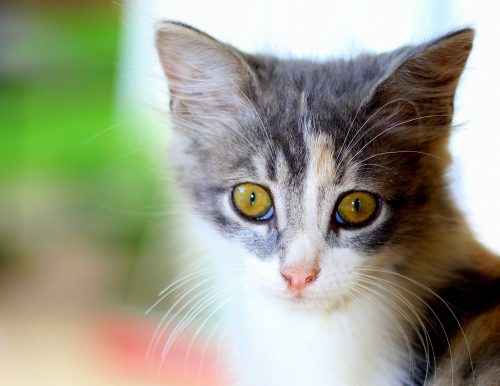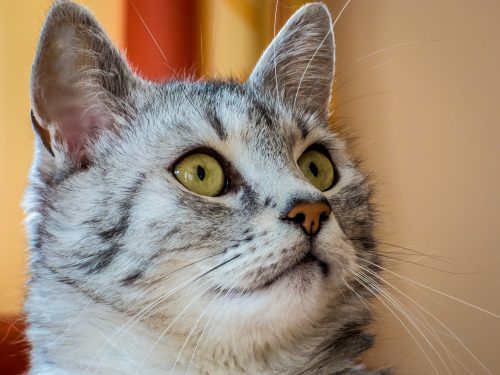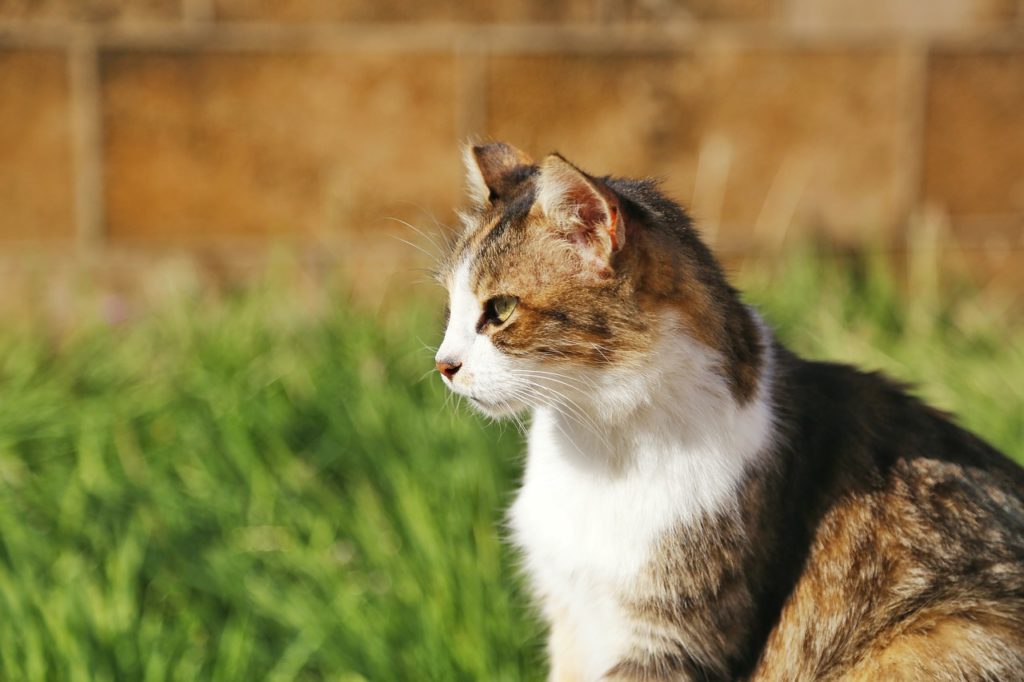You may have heard people exclaim that they feel “hungry as a dog”. But what about being hungry as a cat?
Polyphagia refers to a medical condition where a cat expresses an increased appetite, increasing his food intake to the point of being ravenous. Polyphagia can be caused by psychological problems such as behavioral issues, or by an underlying disease.
Read on to find out what increased appetite in cats, and what you can do if your feline friend is affected.
Causes of Increased Appetite in Cats
Polyphagia, or increased appetite in cats, can be the result of a psychological condition, or a disease. Psychological problems result in learned behaviors which can lead to obesity in cats. If the underlying cause is due to a disease, however, you will notice one of two physical effects: weight gain, or weight loss.
Behavioral issues
Obesity: a growing problem in the feline population, over 50% of cats seen by veterinarians have been found to be overweight, or obese. As a loving pet owner you no doubt want to feed your feline to his heart’s desire. Doing so, however, may lead to a learned behavior of eating too much for her own good.
Diabetes Mellitus
There are two types of diabetes mellitus in cats: Type I and Type II. Type I causes a shortage of insulin, the hormone which allows a cat’s body to convert sugar into energy and manage his blood sugar level. Type II, on the other hand, is an incorrect response from the cells to the insulin that is being produced, thereby reducing the effectiveness of this essential hormone.
Both of these types stop your cat’s muscles and organs from converting glucose to energy, leading to a buildup of glucose in the blood, or hyperglycemia. Increased appetite is a result of that, and this symptom, along with excessive thirst, are two of the most common symptoms of feline diabetes.
Hyperthyroidism
Hyperthyroidism refers to a disease wherein the thyroid produces too much of the hormone thyroxine. Thyroid hormones are used to increase chemical processes in the cells of the cat’s body. With hyperthyroidism, however, the body goes into overdrive from excessive hormone levels, resulting in increased metabolism and therefore increased appetite.
Inflammatory Bowel Disease
Inflammatory bowel disease or IBD is a gastrointestinal problem which prevents proper absorption of nutrients in a cat’s body. As a result, the cat is often subject to weight loss and increased appetite, among other problems.
IBD can affect cats of any age but is more commonly found in middle-aged to older cats.
Age
With age comes wisdom and experience, yes—but also the potential for health problems. As your feline friend welcomes old age, so, too come behavioral and physical problems. Many of the aforementioned health problems are more likely to occur in older cats, thereby causing an increase in appetite.
Cushing’s Syndrome (Hyperadrenocorticism)
Cushing’s syndrome, or hyperadrenocorticism, is a rare condition wherein the body produces too much of cortisone hormone. Excessive levels of cortisone stimulate the appetite, which often leads to rapid weight gain in affected cats.
Pregnancy
Just as with humans, pregnant cats have also been found to experience morning sickness and cravings. Pregnant cats with an increased appetite from pregnancy will gain weight, but may not show until the last few weeks before giving birth.
If your cat is pregnant and you discover her eating dirt or any non-food items, consult your vet right away.
Medications
If your cat has underlying medical issues and is taking other medications as prescribed by your doctor, he may experience an increased appetite as a side effect. Check with your vet on any possible side effects with each medication prescribed.
Symptoms of Increased Appetite in Cats

The symptoms normally associated with increased appetite in cats, or polyphagia, are as follows:
- Obesity from increased appetite
- Weight gain
- Weight loss, possibly from malabsorption of food
- The inability to properly absorb food
- Polydipsia: abnormally great thirst
- Polyuria: abnormal increase in urination
If you observe these symptoms in your cat, schedule an appointment with your veterinarian to find and treat the underlying cause. Overeating long-term can lead to dangerous complications with your cat’s health and well-being.
Sources:
- “Increased Appetite in Cats.” PetMD, Accessed 9 Jan 2018. www.petmd.com/cat/conditions/digestive/c_ct_polyphagia.
- “5 Reasons Your Cat Is Extremely Hungry.” PetMD, Accessed 9 Jan 2018. www.petmd.com/cat/centers/nutrition/slideshows/reasons-your-cat-is-extremely-hungry.
- “Increased Appetite in Cats – Symptoms, Causes, Diagnosis, Treatment, Recovery, Management, Cost.” WagWalking, 24 Sept. 2016, Accessed 9 Jan 2018. www.wagwalking.com/cat/condition/increased-appetite.
- “Dangers of Excessive Hunger in Cats.” Healthy Pets, Accessed 9 Jan 2018. www.healthypets.mercola.com/sites/healthypets/archive/2016/05/24/cat-excessive-hunger.aspx.
- “Signs Your Senior Cat Needs to See the Vet.” The Spruce Pets, Accessed 9 Jan 2018. www.thesprucepets.com/senior-cat-health-3385079.




